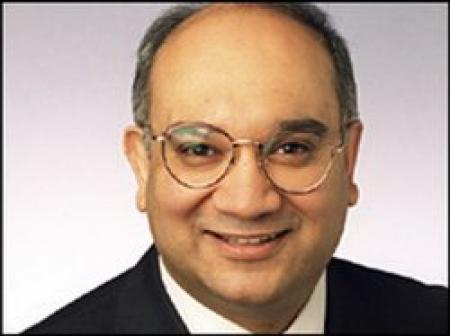ID :
156905
Wed, 01/12/2011 - 14:11
Auther :
Shortlink :
http://m.oananews.org//node/156905
The shortlink copeid
Over 60,000 asylum seekers ‘missing’ in Britain

London, Jan 12, IRNA – British MPs have raised concerns that the programme to clear the historic backlog of 400-450,000 asylum cases will end in July 2011 with some 61,000 unlikely to be traced by the UK Border Agency.
In a new report Tuesday, the Home Affairs Committee said the government agency has been unable to discover what has happened to one in seven of the claimants.
'Much of the delay in concluding asylum and other immigration cases stems from poor quality decision-making when the application is initially considered,” said committee chair Keith Vaz.
Vaz said although the UK Border Agency has made some progress over the last few years in relation to new procedures and approaches, it is “still failing to meet expectations.”
“More consistent and rigorous scrutiny of applications would lead to fewer delays, fewer appeals, less uncertainty for the applicant, less pressure on the officials themselves, and probably lower costs for the UK taxpayer,” he said.
Because of the poor performance, the committee suggested that in the current climate “it is inappropriate for senior Home Office officials to receive any bonuses.”
“We also believe that the new head of the UK Border Agency should not receive a salary greater than either the Permanent Secretary of the Home Office or the Prime Minister,' Vaz said.
The expected closure of over 60,000 cases due to the inability of officials to trace the individuals will effectively leave the claimants and their families in limbo, neither legally settled nor under threat of removal, if they are still in the UK.
The report said the Border Agency was also unlikely to trace 70 of the 1013 foreign national prisoners whose release without deportation led to Charles Clarke's resignation as Home Secretary in 2005;.
Immigration Minister Damien Green said the government had “known for some time that the asylum system was chaotic” but insisted that it has been “recovering slowly.”
'This government is absolutely committed to ensuring asylum cases are concluded faster, at lower cost, and that we continue to improve the quality of our decision making,” Green said./end
In a new report Tuesday, the Home Affairs Committee said the government agency has been unable to discover what has happened to one in seven of the claimants.
'Much of the delay in concluding asylum and other immigration cases stems from poor quality decision-making when the application is initially considered,” said committee chair Keith Vaz.
Vaz said although the UK Border Agency has made some progress over the last few years in relation to new procedures and approaches, it is “still failing to meet expectations.”
“More consistent and rigorous scrutiny of applications would lead to fewer delays, fewer appeals, less uncertainty for the applicant, less pressure on the officials themselves, and probably lower costs for the UK taxpayer,” he said.
Because of the poor performance, the committee suggested that in the current climate “it is inappropriate for senior Home Office officials to receive any bonuses.”
“We also believe that the new head of the UK Border Agency should not receive a salary greater than either the Permanent Secretary of the Home Office or the Prime Minister,' Vaz said.
The expected closure of over 60,000 cases due to the inability of officials to trace the individuals will effectively leave the claimants and their families in limbo, neither legally settled nor under threat of removal, if they are still in the UK.
The report said the Border Agency was also unlikely to trace 70 of the 1013 foreign national prisoners whose release without deportation led to Charles Clarke's resignation as Home Secretary in 2005;.
Immigration Minister Damien Green said the government had “known for some time that the asylum system was chaotic” but insisted that it has been “recovering slowly.”
'This government is absolutely committed to ensuring asylum cases are concluded faster, at lower cost, and that we continue to improve the quality of our decision making,” Green said./end





